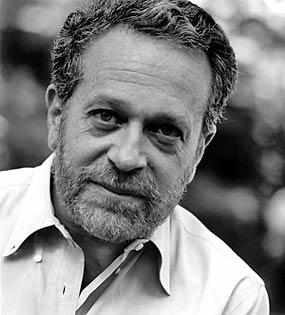
When my parents and their friends told me about their being Democrats, they talked about all the disparate groups of immigrants, ethnic minorities and workers that were joined together by a party which attempted to represent them and their varied interests. They believed they were members of a socially conscious party and opposed a party which they saw as representing the wealthy and business-oriented.
The 30's and 40's were dramatic years with serious national and international problems, wars, rationing, trading roles and more. My parents lived through those years. Their party experiences came from real actions that effected their lives. They were the poor immigrants from Poland and Russia. They were the ethnic minority persecuted Jews. They were the union members and mobile veterans that crossed the country searching for opportunities and education.
But in the 50's, 60's and 70's, things slowly changed. The immigrants and some of the ethic minorities blended into the mainstream, upped their family incomes above the poverty level and became middle class. They aged and got fat both literally and physically. And the need for a helpful political party diminished. Nothing dramatic was pressing; things were good; they didn’t have that many political needs.

Then came the assassinations, the scandals, the trials, the racial adjustments with Black Americans.
Simultaneously during those years many other trends were happening.
Fewer heroes came to Congress to give back to their country. Fewer ethical people came to Congress. More lawyers came and less got done. People grew tired of the bickering and lack of progress. Campaigning, polling and communicating grew more elaborate, effective and costly.
The party of the many became a party identified with Black causes, with the liberal spin on most issues, and with a focus on issues of the poor, senior and disadvantaged. It didn’t really represent middle America, middle-income families and the upwardly mobile. The Republicans became the more steady, the party that represented the silent majority, the party with the biggest investment in new campaigning practices.
And now that the Republicans have shot themselves in the foot with their agenda, their methods, their lies, and their Bush’s, and it’s very likely that in spite of themselves, Democrats are likely to win back the Senate and House and possibly the Presidency, who are those Democrats? Are they the party of my parents or are they something entirely new and different? Is there anyone real there? Is there anyone there that I want to represent me in the important issues of the day: global warming, health care, poverty, education and re-education, religious wars and terrorism?
Ex-Secretary of Labor Robert Reich writes in his blog that there's no longer a Democratic Party.

...the Dems have no message, no plan, no strategy, no guts... The basic problem is there's no Democratic Party. Of course there are the trappings of a party -- conventions, meetings, state operatives, mailing lists, and so on. But compared to the Republican Party, Dems are a bunch of wild weenies in the wilderness.
In trying to describe the Democratic Party I'm reminded of what Gertrude Stein once said about Oakland, California: "There's no there, there." So here's the question: Why is the Republican Party so well organized -- with messages, plans, strategies, and all the rest? Why are Dems so much the opposite. Answer: It's because Republicans tend to be authoritarian. Authoritarian personalities -- who get off on control, order, and discipline -- naturally gravitate to conservative Republicanism. Democrats tend to be anti-authoritarian. Anti-authoritarian personalities -- who don't like to take orders, who don't care about controlling anything, who are inherently undisciplined -- become liberals, progressives, and Democrats. This assymetry has haunted American politics for years. The Republican Party is much more conservative than most Americans, but they keep getting voted in because they're more disciplined about politics.
I agree with him wholeheartely - and sadly - because what he says is so true. We've been passive too long.
I'm convinced that things will get worse and that there will be a leadership void even greater than the one now until socially conscious Americans rise up and make things happen -- by insisting that their representatives in Congress hear their concerns and do something about them, and by quickly changing their representatives if they don't. This means EVERY socially conscious American: you and me and them.